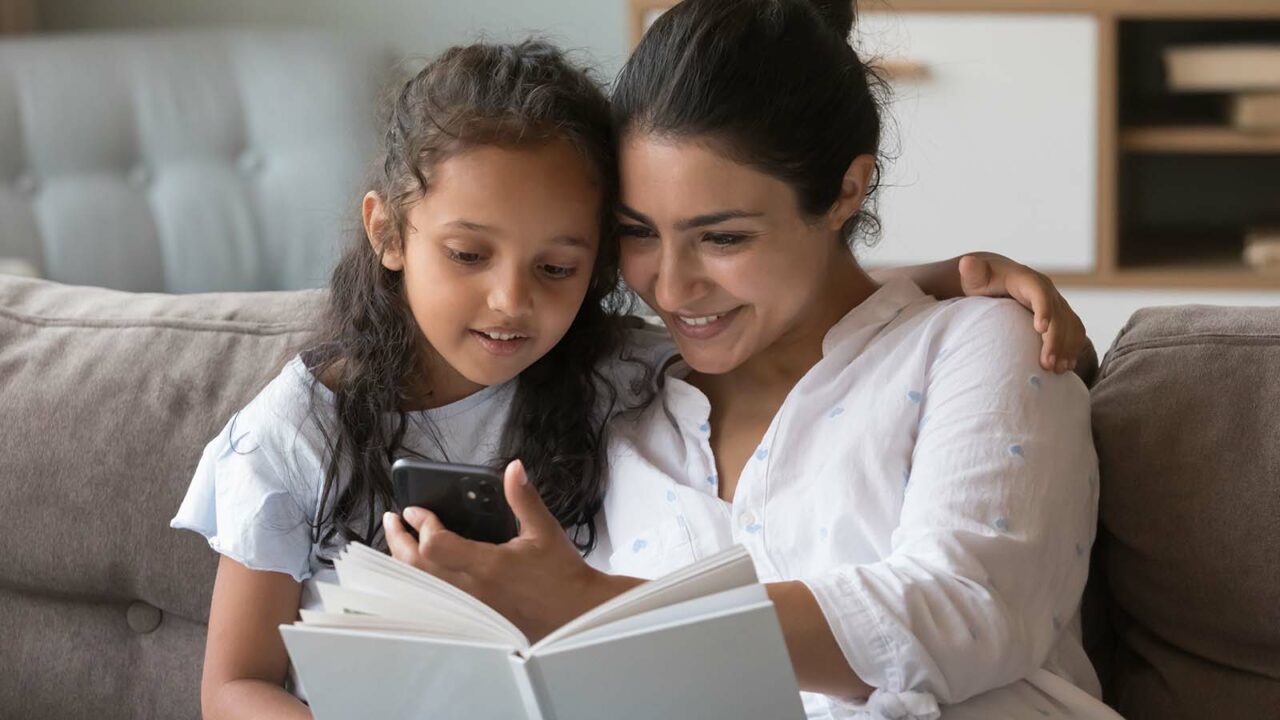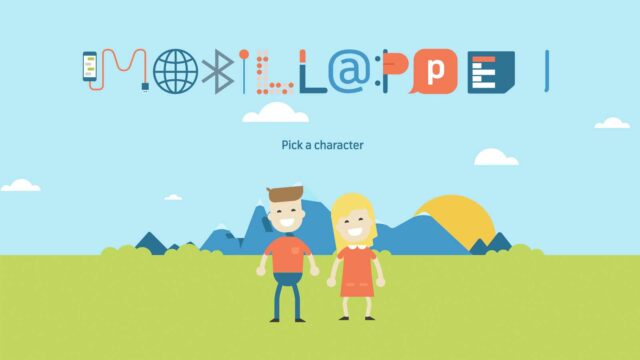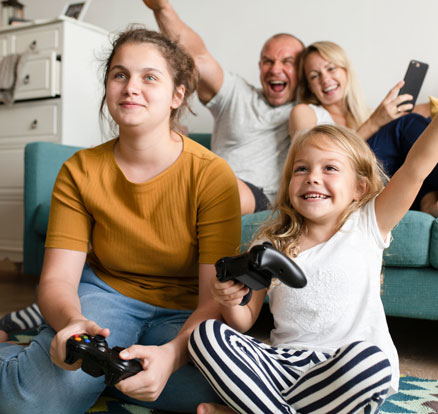
Norwegian children and their phones and apps
Are you an immigrant? Almost all Norwegian children between 9 and 11 years old have their own mobile phones. If you have moved to Norway, you may come from a country where it is common for children to be much older before they get their own phone.
Choose language in the box below. Some translations may be flawed or inaccurate.
On the site «Kids and Media» we give information and tips for fresh immigrants and language minorities in Norway.
When your children start at a Norwegian school, they may ask you for a phone after some weeks, because all the Norwegian children have phones and because communication among the children often takes place on their phones. It is on the phone that they decide to play soccer together or play on the computer at home.
In Norway, students are not allowed to use phones at school, but they can bring phones to the school and home again.
The problem is that when you give your child a phone, the child can use the internet. It is many good things online, but it is also many bad things.
When we at Kids and Media («Barnevakten») talk to immigrants, they say that it can be difficult to raise children when the children live in two different cultures.
Many Norwegian children also use social media, like Snapchat, Instagram and Tiktok, even though the terms in the apps say that the children are too young. Typically, the terms say that you must be at least 13 years old, but half of Norwegian children at age between 9 and 10 years use such apps.
With social media, children can keep in touch with family members who live in other countries. But in social media, there can also be fake news, advertisements, and bad discussions.
Norwegian parents feel pressured to let their children break the terms of service in the apps so that the children do not feel left out by their classmates. Because a lot of communication between children takes place in social media.
When children start at school in Norway, 6-7 years old, they are given an iPad or similar tablet from the school. The school lends this to the child.
On the iPad, the child may be able to freely access the internet. It may also happen that the school has blocked access to many websites.
Some schools say that the student must bring the iPad home every day to charge it or do homework on it. That means your child may have internet access at home too.
Each family must decide whether children can go online or not at home or on the way to school, and whether it is okay to break the age limit in social media. For some immigrants, this can become a difficult dilemma.
This because it is often mobile phones, the internet, and social media, that enable children to make Norwegian friends. And it is with Norwegian friends that they become integrated into Norway, understand the culture better, become better in the Norwegian language, and have a greater chance of getting a good education and a good job as adults.
Kids and Media («Barnevakten») provide tips and advice to parents, both Norwegian parents and immigrants, on how to make it safer for children to be online.
Some advices for parents
- Ensure that the child trusts that it is okay to come to you for help if something negative happens online. To achieve this, you should not only talk about everything that is dangerous, but you should also show interest in the positive things the child seeks out online.
- In many apps, you can make them safer for children by using parental controls.
- Even if you cannot speak Norwegian, try to connect with the other parents in the class. Attend what is called «foreldremøte» at school. Or participate in some of the child’s activities so that you meet other parents. By knowing other parents, it is easier for you to solve problems that may arise.
- There are some conflicts between children that can arise online. By being interested in your child’s digital life every day, you may be able to detect if a conflict has arisen. And sometimes you need to talk to other parents to solve the problem.
- Read the articles on «Kids and Media«.
There is much more to say about this. Feel free to become a member of «Barnevakten» to receive email with new tips every week. If you cannot afford to be a member, for example because you are a refugee, you can be a member for free.
Photo: Shutterstock / fizkes.










